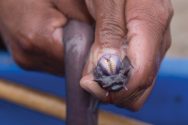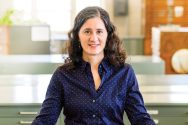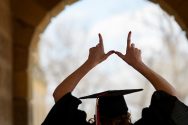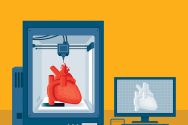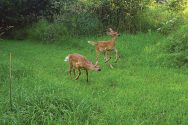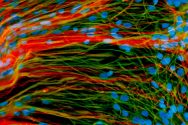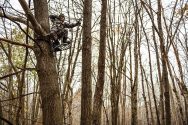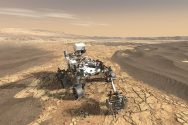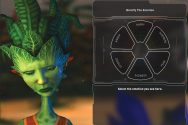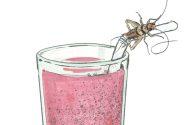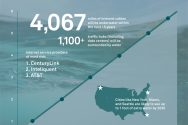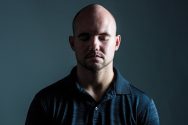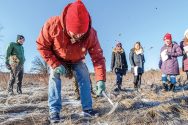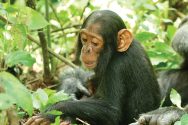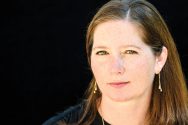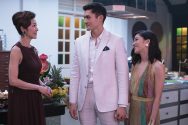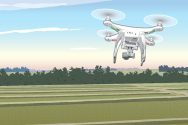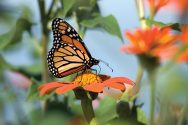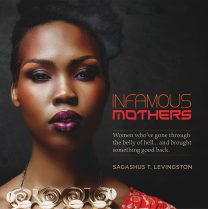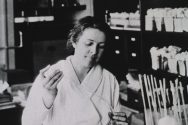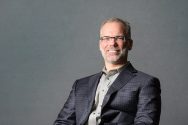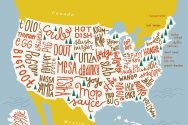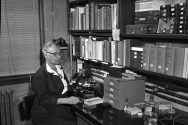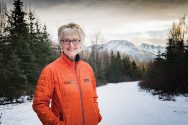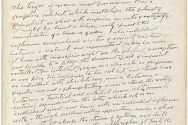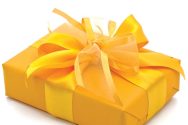Experts use math to better understand a sea creature’s defense mechanism.
Research
379 stories. Showing page 4 of 13.
The #MeToo movement reaches far beyond Hollywood and Capitol Hill. The sciences are also grappling with how to address sexual harassment. This past year, the American Geophysical Union adopted a policy that added sexual harassment as a form of scientific misconduct, saying that it willfully compromises the integrity of…
McCoy, pictured in her bacteriology lab in 1953, became one of the first women in science to earn a full professorship at the UW. UW Archives S08175
Bacteriologist Elizabeth McCoy ’25, PhD’29 joined the UW faculty in 1930, and in 1943, she became the second woman at the…
Sorbetto/ISTOCK
3D printing seems like science fiction come to life.
“It’s kind of Star Trek–like,” says Dan Thoma MS’88, PhD’92, director of the Grainger Institute for Engineering, who has researched the technology for 25 years.
Remember when Captain Picard commanded the replicator on the…
Wrestling bears, a soaring eagle, and curious fawns are among the 22 million images captured by a first-of-its-kind network of volunteer-run trail cameras in Wisconsin.
The project — called Snapshot Wisconsin — was launched in 2016 by the state’s Department of Natural Resources to monitor wildlife and to help…
It’s been two decades since the first human embryonic stem cell lines were derived at UW–Madison. What effect has the discovery had on scientific research and human health?
The country’s population of whitetail deer is at record numbers, and a UW scientist’s work grapples with what that means for their environment.
Adam Steltzner PhD’99 just wanted a regular job, so he became an engineer — eventually, one of NASA’s top engineers. Now he’s helping lead the search for life on Mars.
New research from the UW shows video games could help teach empathy to adolescents.
A UW researcher finds that a different kind of breakfast could improve health.
Chris Borland ’13 did the unthinkable: he abruptly retired from the NFL, bringing the unseen dangers of the sport to the forefront.
With shovels in tow, a UW program is tackling two crises at once: a shortage of students in science and a growth of antibiotic resistance.
A UW–Madison lab seeks to improve outcomes for transgender people.
In a new book, former Wisconsin governor Tommy Thompson ’63, JD’66 recalls his partnership with UW–Madison and his support for biotechnology research.
A UW expert discusses the “dark side” of international relations: dictatorships.
After a UW scientist and his wife lost two pregnancies, he sought answers. Why are these losses so common, and do other living things face the same struggle his family did?
UW researchers are using drones to search for more sustainable farming methods.
UW–Madison’s Arboretum is part of a nationwide effort to protect the popular insect.
UW–Madison researchers in South Africa are at the heart of work that is unraveling the mysteries of the universe, determining when and how life on Earth began, and identifying the origins of humankind. A team from University Communications — videographer Justin Bomberg ’94, photographer Jeff Miller, and science writer…
Meet a Badger who made one of the most important contributions to public health in the 20th century.
Erik Iverson calls himself the consummate outsider: he is not a UW–Madison alumnus and he’s not from Wisconsin. But in 2016, he became the managing director for the Wisconsin Alumni Research Foundation (WARF), which helps UW researchers take their discoveries to the marketplace. Since then, Iverson has…
Half a century ago, 80 language lovers fanned out across the country to chat with as many people in as many places as possible with a single goal in mind: creating an all-encompassing dictionary of how Americans talk.
After decades of playing back tape recordings, demystifying phrases like “dog my…
Researcher Eloise Gerry blazed a trail for female scientists during her four decades with the U.S. Forest Products Laboratory in Madison. Photo courtesy of USDA Forest Service, Forest Products Laboratory, Madison
I always knew my children would be smarter than me — I just didn’t expect…
In Alaska, where glaciers are melting, Fran Ulmer ’69, JD’72 leads a commission tasked with helping U.S. officials decide what to do about climate change.
Gaffera/Istock
If it’s the thought that makes a gift count, here’s a thought that can make your gesture count extra: get a little something for yourself.
Research by Evan Polman of the Wisconsin School of Business shows that recipients are happier with presents when…
